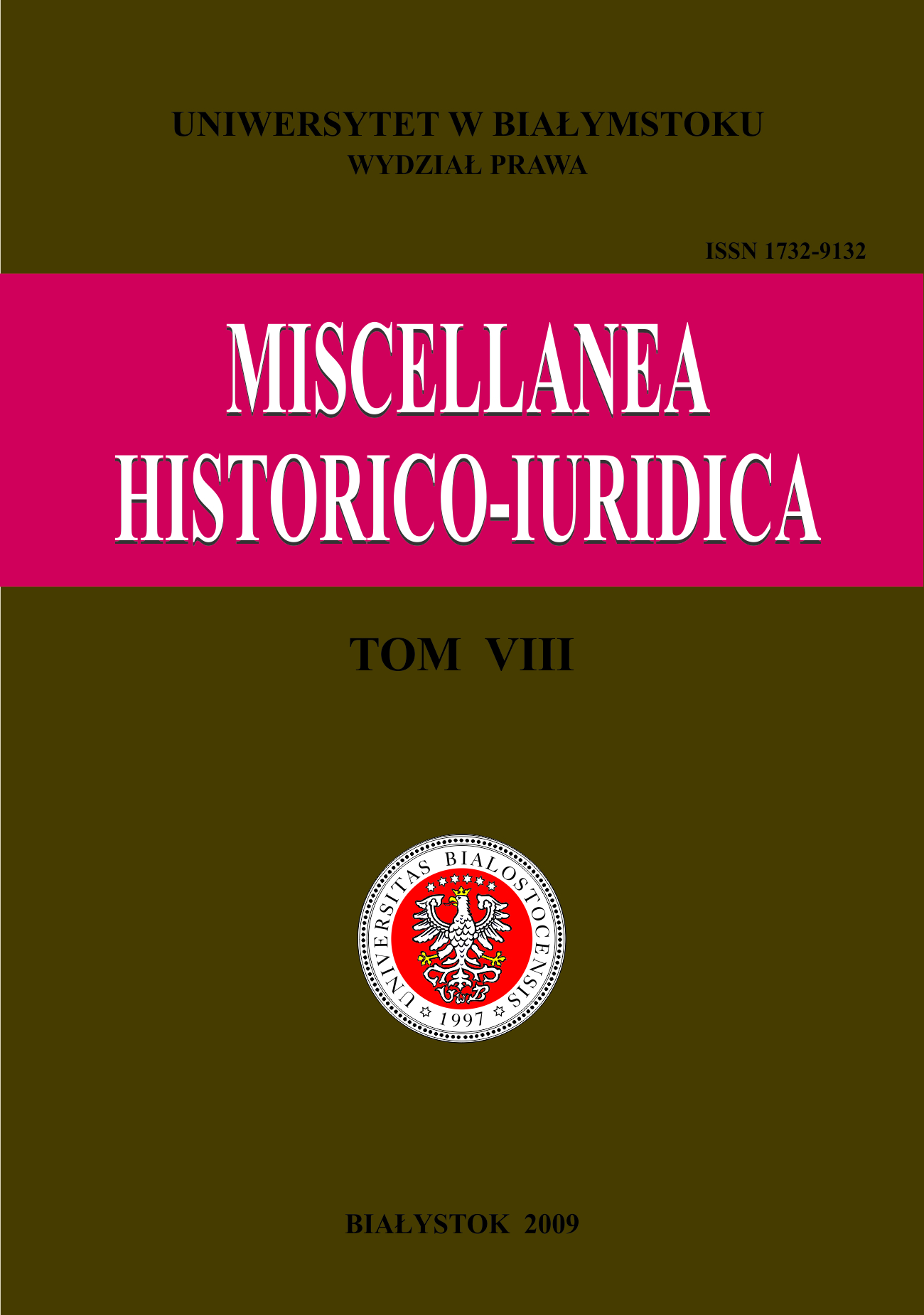Instytucja warunkowego zwolnienia w latach 1944–1960
Keywords:
elease from serving full sentenceAbstract
After World War II the new socialist system influenced not only on social and economic life, but also on penal law. Earlier theories on causes of crime and on legal measures of combating the crimes were reviewed. The punishments, including the penalty of deprivation of liberty, were supposed to play correctional and educational role. According to this theory, the system of prison organization was based on education of prisoners and on preparing them for future honest life. One of the most important measures was employment of prisoners. After the war the state needed workers and the state officials decided to use prisoners as a labour force. The motivation to make them work harder was very simple: the chance for conditional release from serving full sentence. Act from October 31, 1951 on conditional release from serving full sentence has introduced so called obligatory conditional release to Polish legal system. If you worked hard and you were more productive than the average, you could be released when you worked in this way for more than half time of your sentence. This solution was criticized by the doctrine and in 1957, after the fall of Stalinism, a new act was passed. It was based on modern solutions, different from those applied in the 1951 act.







